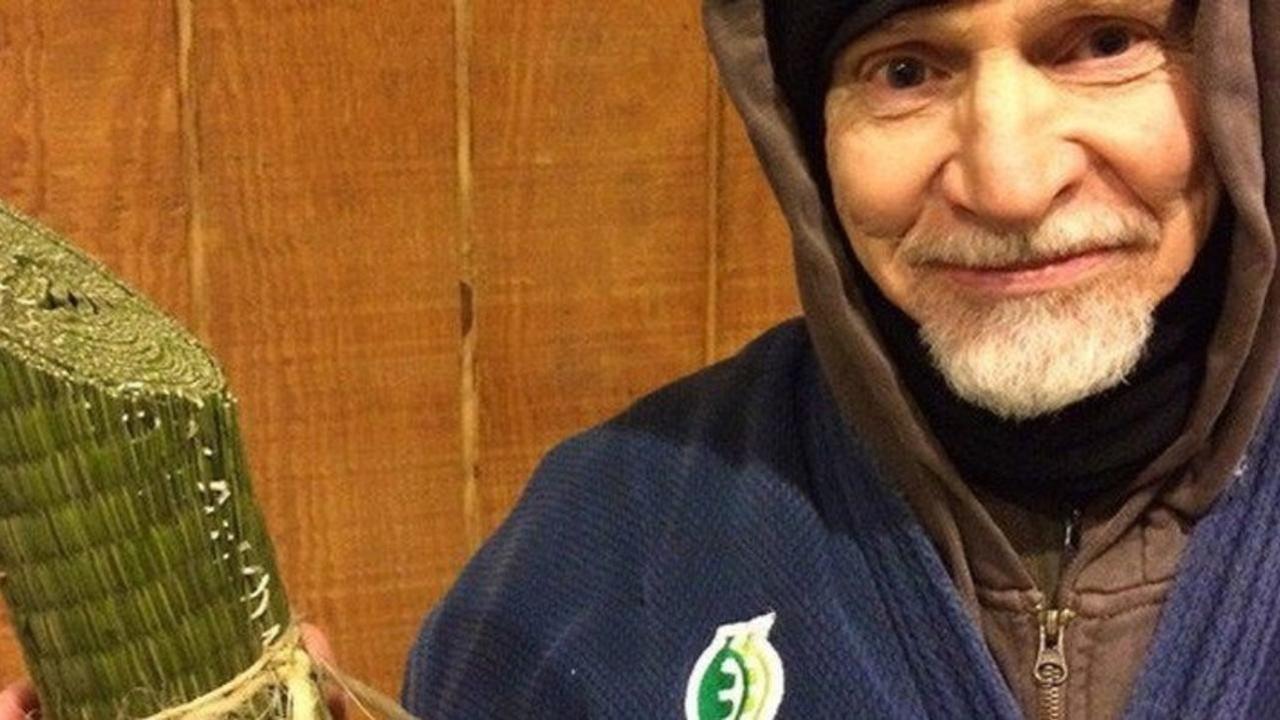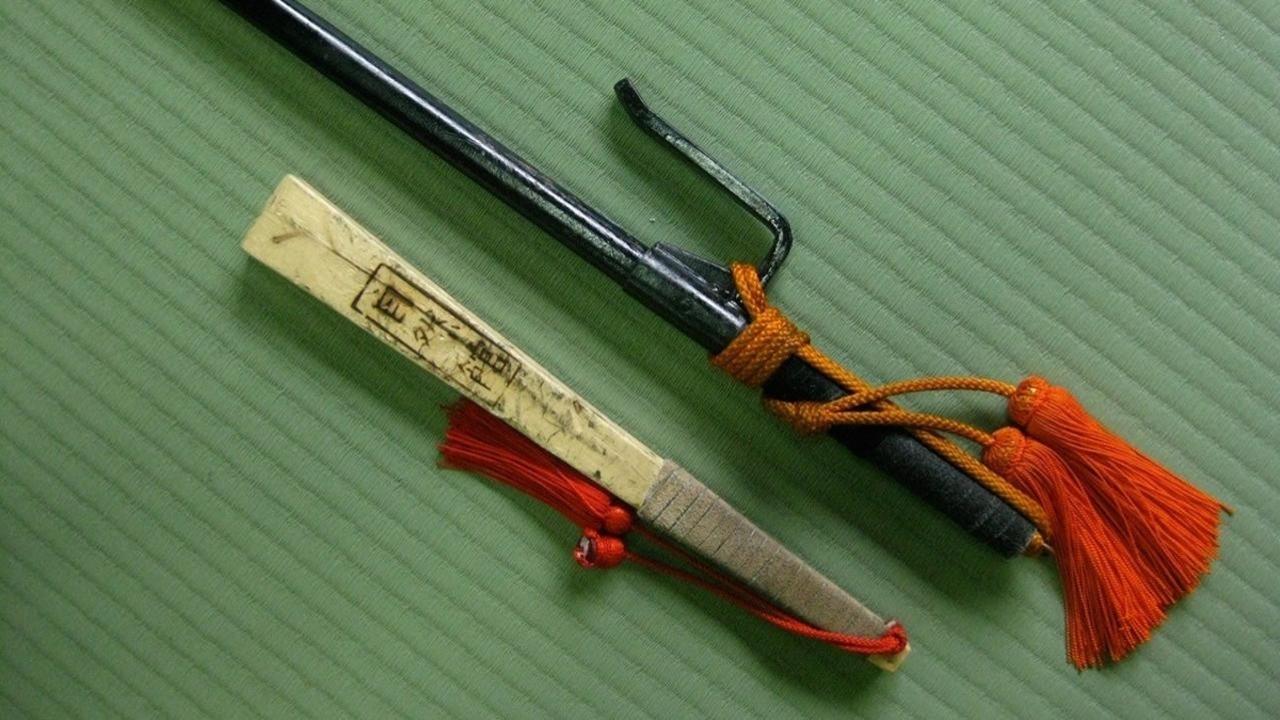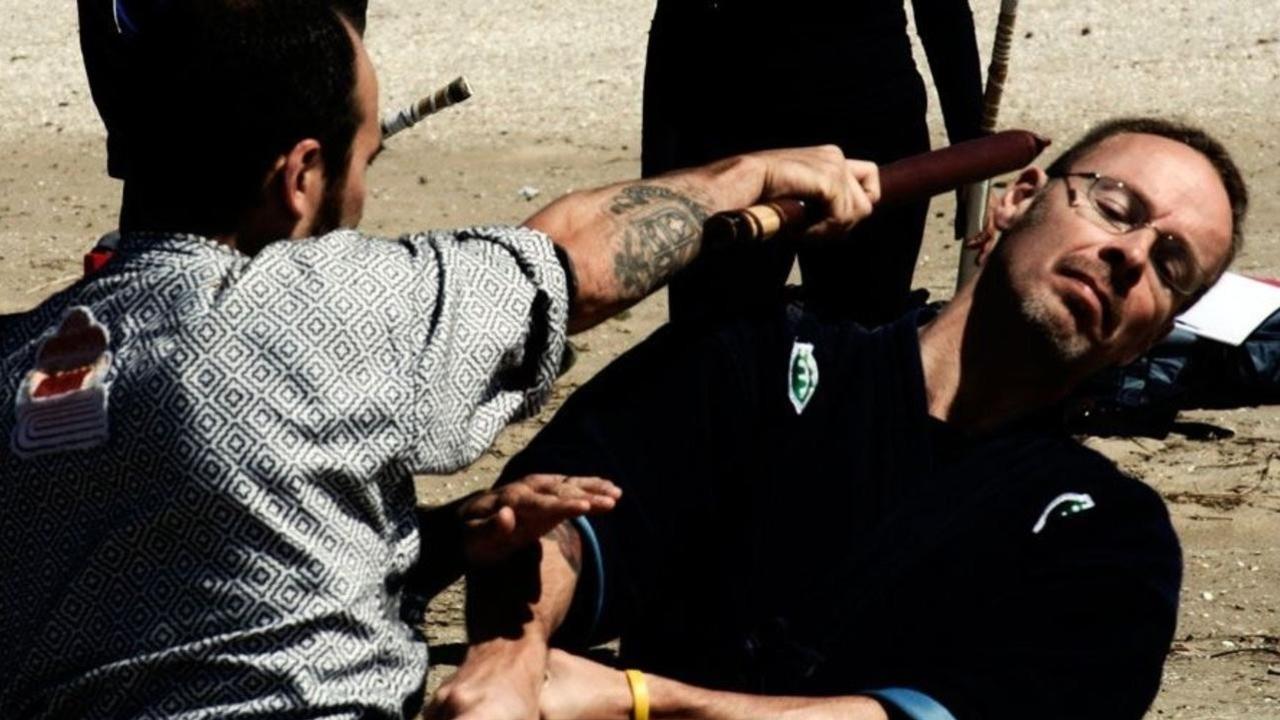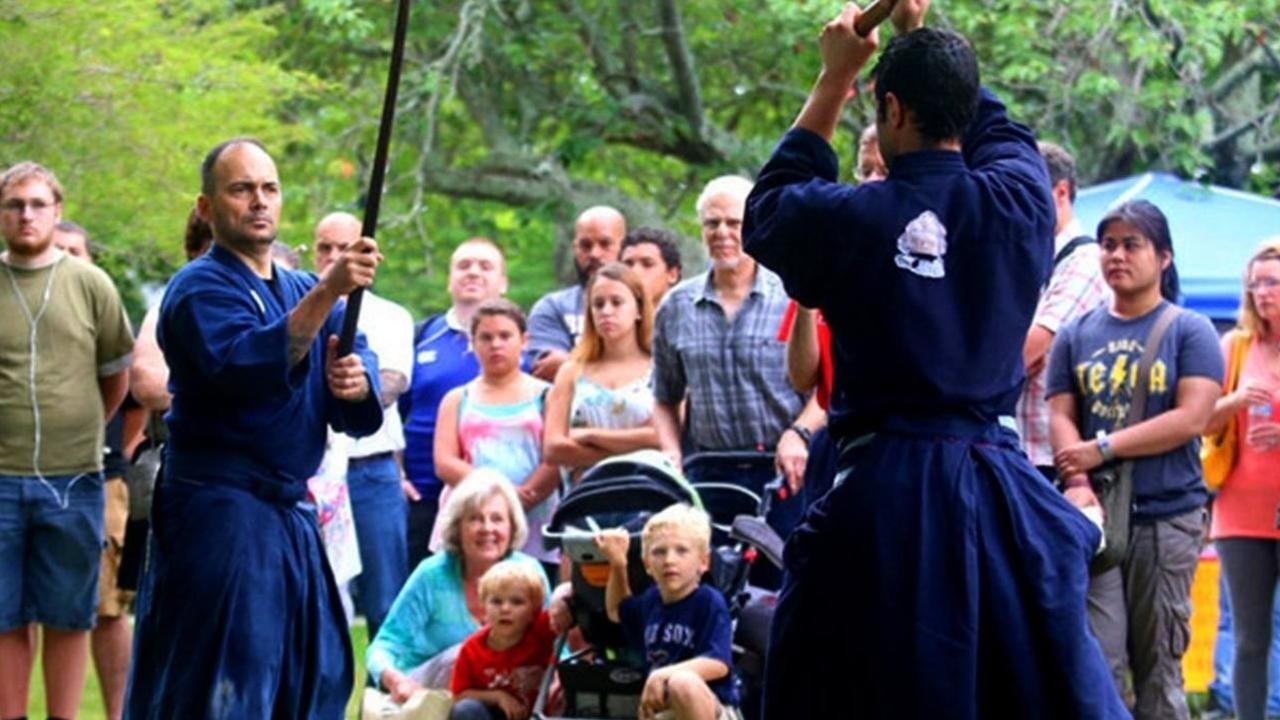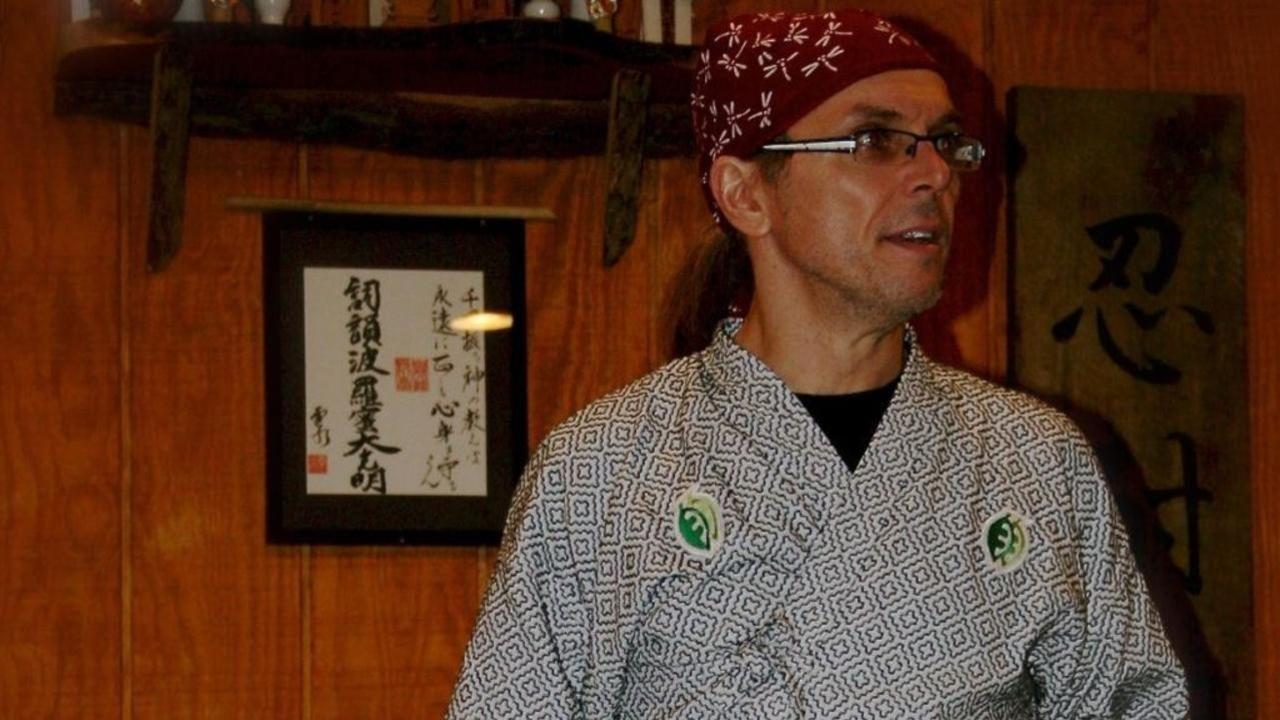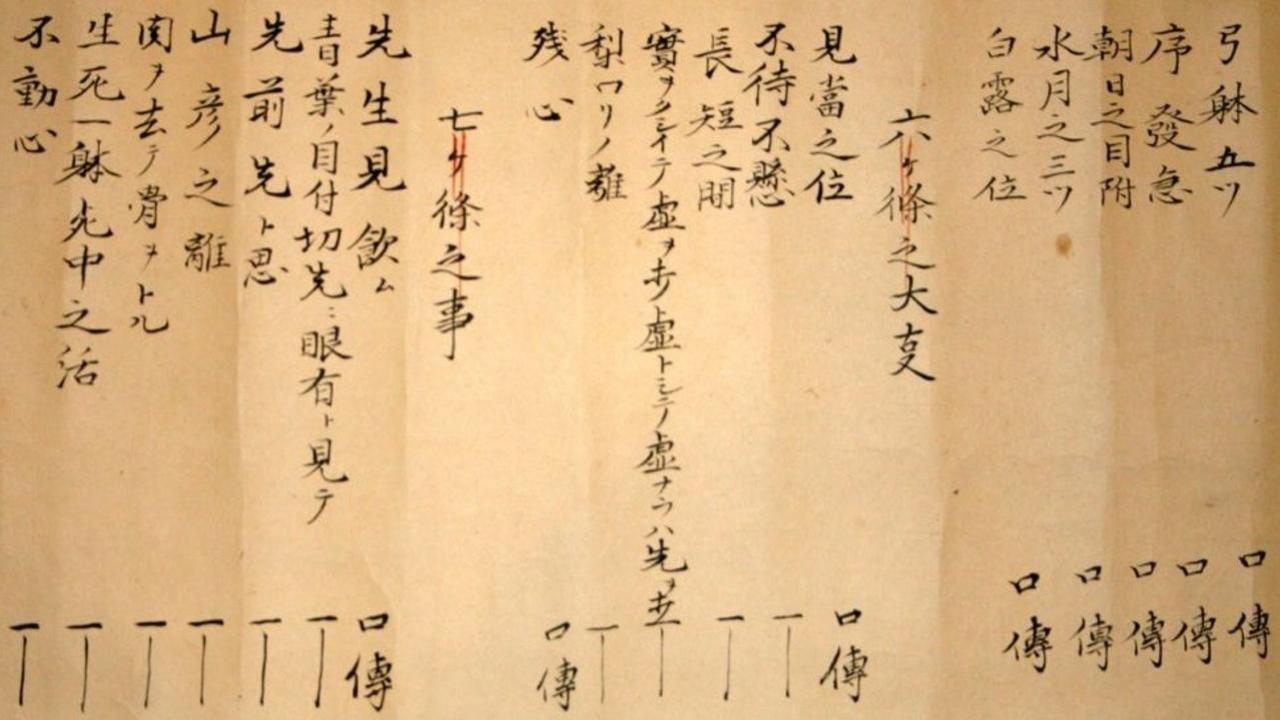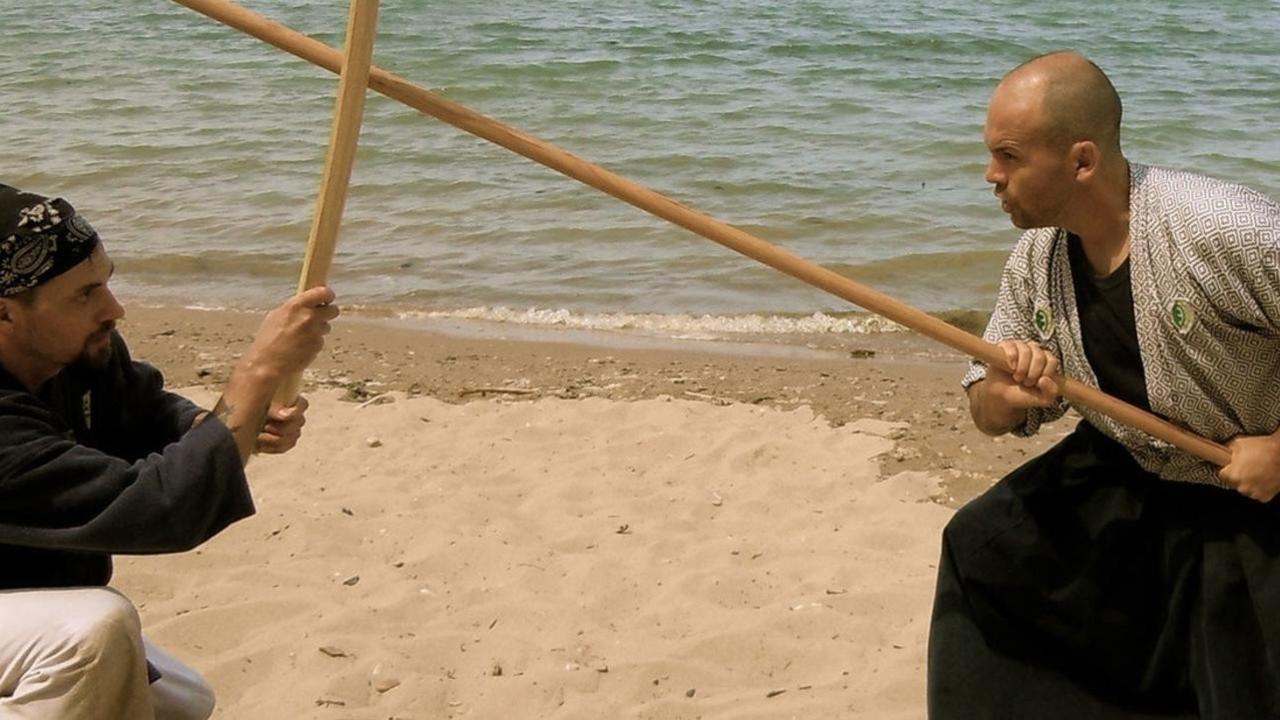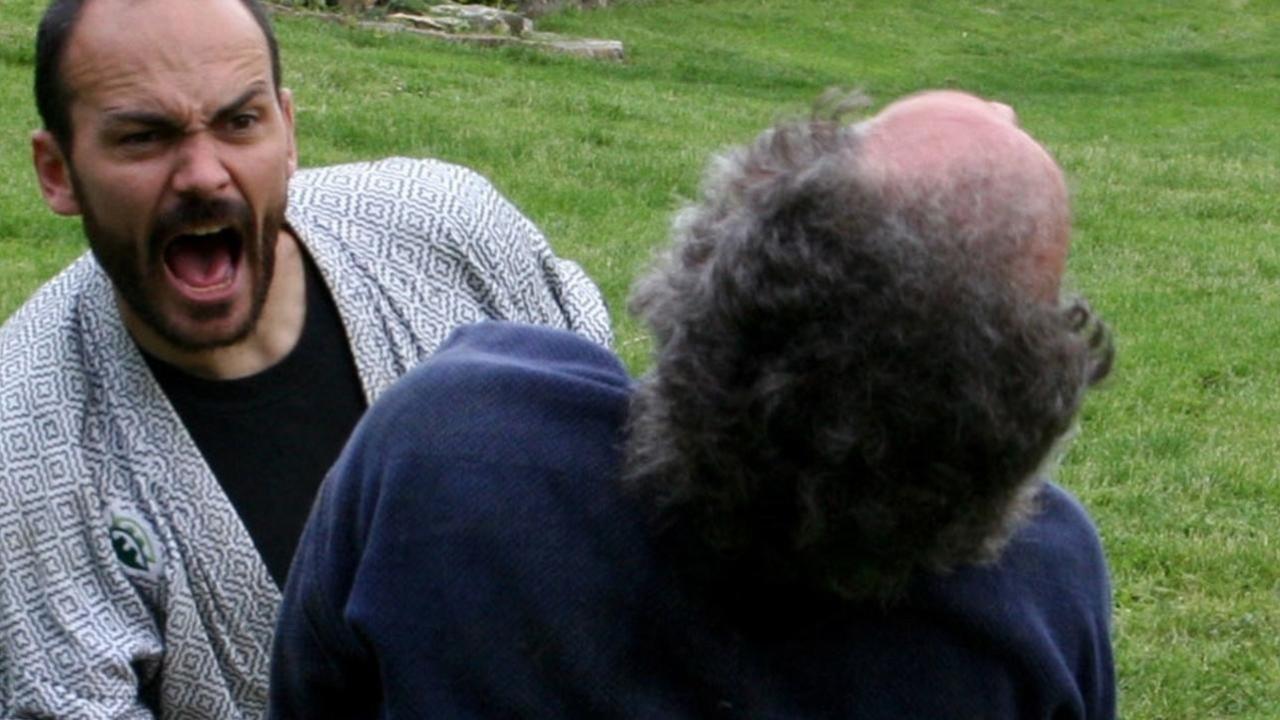A wonderful gift in the mail that arrived from fellow budoka who travelled from Vancouver, BC to train with us in New York during Unsui Sensei's 2015 Seminar. Peter Haddad arrived on Tuesday to attend...
I’m not a football fan, but my oldest son is. For that reason, I’ll sit with him and endure what I find to be a quite over-rated sport. Last February, I took the night to sit with Adam and watch the S...
Kyoei no Kamae 虚影の構え. The feeling is of one showing 突きor opening to the opponent with either the left or right shoulder.
We began this training this spring at Sensei’s request.

At our Dojo, we began Tessenjutsu in September, 2014. Our goal is to complete the Kamae Kihon and Kata by January, 2015. To help support this training and make it more comprehensive, I’ve written this...

Adam Mitchell of the Jinenkan Kōsei Gōgi Dōjō will be teaching on June 27th, 28th and 29th the art of Kukishin Ryū Dakentaijutsu, 九鬼神流打拳体術 along with Rico Van Veenendaal of the Jinenkan Mononofu ...
 This weekend, I overheard a local martial arts guru discuss with a kind man the difference between the martial art he studied and the one I study. I usually don't dabble in this type of talk, bu
This weekend, I overheard a local martial arts guru discuss with a kind man the difference between the martial art he studied and the one I study. I usually don't dabble in this type of talk, bu
The 2013 Newport Black Ships Festival was a great success. As always, we were happy to train alongside our fellow martial artists as well as enjoy the beautiful music and good food being served throug...
There’s two new blocks of concrete hanging around the Dojo right now. Actually, there is going to be quite a few over the next few months as I build by hand each piece of training equipment for Hojo u...
 Before I get into my thoughts about this book let me just be very clear that the author of this translation, Eric Shahan is a friend and colleague. When I first heard about this project I was supe
Before I get into my thoughts about this book let me just be very clear that the author of this translation, Eric Shahan is a friend and colleague. When I first heard about this project I was supe
The Dōjō is a place you can come to when your life is over crowded. But it's no get away. There is no cold drink cooler, no candy machine, nobody to pat your bottom and tell you how hard you work. It'...
“Kata is an embodiment of teaching, therefore it should be learned correctly without preconception. Kata is also like a “container,” with which we pass its “contents called Ryuha” from teachers to lea...
A Review of the Kotō Ryū and Jinen Ryū Iai no Maki workshop with Mario DeMol.
Once again, Belgian Dojocho and senior student to Manaka Unsui Sensei visited New York to teach at the Jinenkan Kosei Gogi...
There sure is alot of discussion about ‘form.’ It seems that this discussion is really centered around the varying training methods of instructors in the Bujinkan Dojo. I really don’t see instructors ...
“Last weekend I was honored to be able to learn from Adam Mitchell sensei in Milwaukee. I am very impressed with the dedication to this art as presented by Adam Sensei. I know in my heart that he is t...
Review of Rico van Veenendaal’s visit to NY
February 3rd & 4th, 2012: Jinenkan Dōjōchō Rico van Veenendaal from the Mononofu Dōjō in Schiedam, Netherlands visited New York during the first week of Augu...
I found this little gem in some old notes today dating back to from May, 2001. It is on Kiai, 気合.
“Today we trained the final techniques of the Naginatajutsu and there was a strong emphasis on the us...


